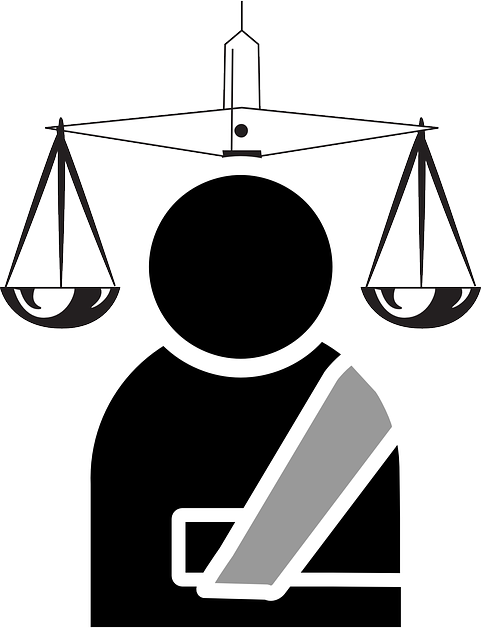Contempt of court, a legal issue with civil and criminal forms, requires strategic approaches. Gathering evidence, motions, hearings, and meticulous documentation are key to successful contempt legal strategies. Mitigating factors and defenses are crucial for just resolutions, balancing accountability with extenuating circumstances. Punitive measures should be applied thoughtfully, while alternative solutions like mediation offer efficient, cost-effective paths to mutually agreeable outcomes.
“Navigating complex contempt legal matters requires a deep understanding of various strategies. This article delves into the intricacies of contempt of court, exploring its definition and diverse types. We dissect effective legal strategies, including evidence presentation, motions, and hearings. Understanding behavior patterns and their documentation is key to establishing contempt. Furthermore, we analyze mitigating factors, defenses, and excuses, along with punitive measures and sentencing options. Finally, alternative dispute resolution methods and negotiation techniques offer promising solutions.”
- Understanding Contempt of Court: Definition and Types
- Legal Strategies: Evidence, Motions, and Hearings
- Documenting Behavior: Establishing Patterns of Contempt
- Mitigating Factors: Defenses and Excuses Explored
- Punitive Measures: Consequences and Sentencing Options
- Resolving Disputes: Alternative Solutions and Negotiation
Understanding Contempt of Court: Definition and Types

Contempt of court is a serious legal issue that occurs when an individual or party fails to comply with a court order. It’s a broad term encompassing various actions, ranging from deliberate acts of defiance to unintentional omissions. Understanding the nature and types of contempt is crucial for devising effective contempt legal strategies.
There are two primary forms: civil and criminal. Civil contempt involves willful failure to adhere to court-mandated actions, often resulting in fines or imprisonment until compliance. Criminal contempt, on the other hand, pertains to deliberate acts intended to interfere with judicial proceedings, carrying stiffer penalties. Recognizing these distinctions is essential for navigating contempt legal matters successfully and ensuring the integrity of the legal process.
Legal Strategies: Evidence, Motions, and Hearings

In resolving complex contempt legal matters, a robust strategy is essential. Legal strategies in such cases heavily rely on meticulous evidence gathering and presentation. This includes documents, witness testimonies, and any digital evidence relevant to the contempt alleged. A comprehensive understanding of the facts is crucial for building a strong case.
Motions play a pivotal role in these proceedings. They allow legal representatives to request specific actions from the court, such as dismissing allegations, modifying sanctions, or granting extensions. Hearings provide a platform for presenting evidence, examining witnesses, and arguing legal points. Effective use of these contempt legal strategies can significantly influence the outcome, ensuring fairness and justice in complex cases.
Documenting Behavior: Establishing Patterns of Contempt

Documenting behavior is a crucial step in resolving complex contempt legal matters. Lawyers and judges rely on thorough documentation to establish patterns of contempt, which are essential for developing effective legal strategies. By meticulously recording instances of non-compliance with court orders, such as repeated failures to attend hearings or deliberate acts of disobedience, legal professionals can build a compelling case. This process involves gathering evidence, including witness testimonies, court records, and any relevant communications, to paint a clear picture of the offender’s conduct.
Establishing patterns allows for a strategic approach in contempt proceedings. It helps identify recurring issues and enables legal teams to tailor arguments accordingly. For instance, documenting behavior can reveal a pattern of willful ignorance or intentional defiance, strengthening the case for punitive measures. Conversely, it might also expose misunderstandings or sincere efforts to comply, influencing the court’s decision towards more restorative contempt legal strategies.
Mitigating Factors: Defenses and Excuses Explored

In resolving complex contempt legal matters, understanding mitigating factors is crucial. Defenses and excuses play a significant role in shaping the outcome of such cases. Legal strategists often explore options like lack of knowledge or willful blindness as potential defenses, arguing that the accused was unaware of their obligations or did not intend to violate court orders. These arguments can be powerful when backed by evidence, demonstrating a good-faith effort to comply or an honest mistake rather than deliberate contempt.
Additionally, mitigating factors may include circumstances beyond the control of the individual, such as mental health issues or substantial changes in personal or professional life. Presenting these defenses effectively requires a thorough examination of the facts and careful legal analysis. Contempt legal strategies must navigate the balance between holding individuals accountable for their actions and recognizing extenuating conditions to achieve just resolutions.
Punitive Measures: Consequences and Sentencing Options

In contempt legal matters, punitive measures play a significant role in deterring future violations and ensuring compliance with court orders. The consequences can range from monetary fines to imprisonment, depending on the severity of the contemnor’s actions. Sentencing options are tailored to the specific case, considering factors such as the nature of the contempt, any previous offenses, and the impact on the aggrieved party.
Effective contempt legal strategies involve a balanced approach that punishes the offender while also encouraging reconciliation and compliance. Lawyers and judges must carefully navigate these measures, ensuring they serve as deterrents without becoming overly punitive. The goal is to resolve the matter in a way that respects the rule of law while promoting fairness and justice for all parties involved.
Resolving Disputes: Alternative Solutions and Negotiation

In navigating complex contempt legal matters, exploring alternative solutions and negotiation can be a strategic approach to resolving disputes outside of court. These contempt legal strategies often prove beneficial when parties involved desire a more collaborative outcome. Alternative dispute resolution (ADR) techniques, such as mediation or arbitration, offer an efficient and cost-effective avenue for reaching mutually agreeable resolutions.
Effective negotiation plays a pivotal role in these processes. It encourages open communication, allowing each party to express their perspectives and concerns. Through creative problem-solving, contempt legal strategies focused on negotiation can lead to innovative solutions tailored to the unique circumstances of the case. This collaborative approach not only fosters mutual understanding but also promotes a sense of ownership over the outcome, enhancing the likelihood of adherence to any agreements reached.






